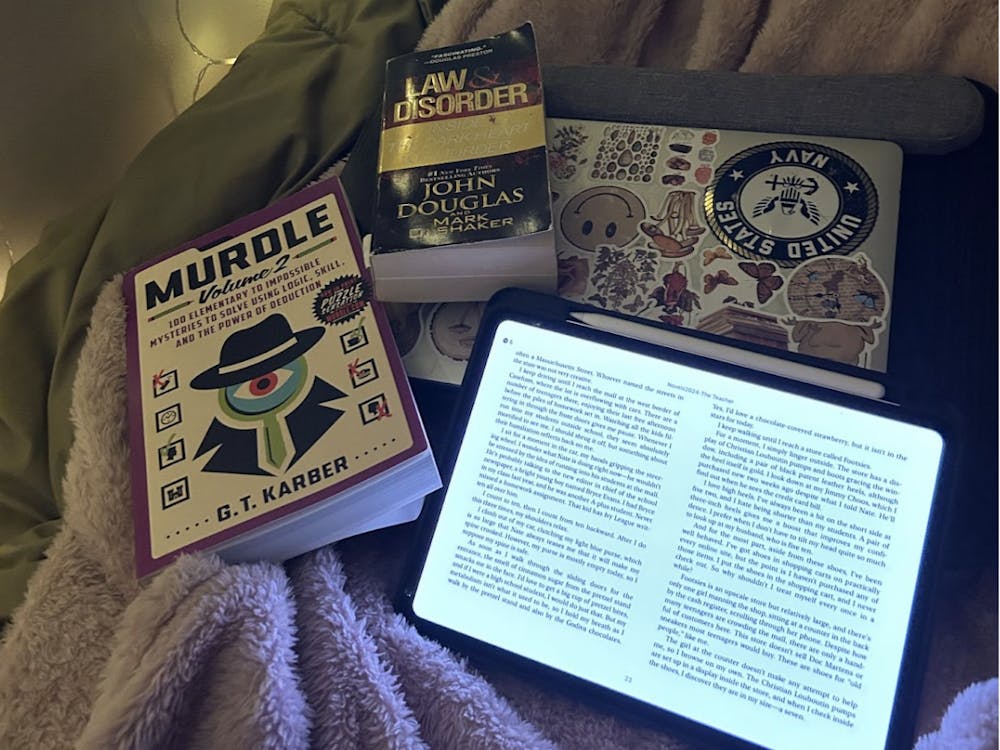Danny Brown’s sixth studio album, Quaranta (“40” in Italian and referring to his age), is a sequel to his critically acclaimed album XXX (also referring to his age at the time, meaning “30” in Roman numerals). Its release comes at the curtails of a particularly turbulent year for rap — from the overreactions at the lack of a number one Billboard rap album in the first half of the year, to the latter half’s big-name releases from Drake and Travis Scott, this year has been a whirlwind for rap in particular.
With very few new voices reaching the mainstream (minus Ken Carson), it might seem that rap is stagnating. The truth is, however, that rap is becoming more experimental than ever before.
New York underground rap used to be true to its classification: underground. Now, artists like Griselda Records rapper Westside Gunn and hip hop producer The Alchemist are working with household names such as Travis Scott and Drake. Ken Carson’s new long play (LP) also outstreamed Offset (rapper of the band Migos) and is emblematic of a larger shift towards the distorted trap sound. Brown’s own indie label, the Bruiser Brigade, is a hallmark of this increasingly diverse hip hop landscape, which features lesser-known artists like rapper-producer Zelooperz.
This is Brown’s second album of the year. Back in late March, Brown paired with hip hop producer and rapper JPEGMAFIA to create the exuberant “SCARING THE HOES,” which leaned into the high-energy side of modern experimental rap, a sound which Brown has maintained through projects like XXX and Atrocity Exhibition. The production on Quaranta is still somewhat experimental, but far more laid-back. The title and intro track, when compared with the title track of XXX, shows Brown is in an introspective mood at his 40-year milestone, as he ruminates on the effect of the rap game on his own lifestyle, imparting his wisdom as an established veteran of the genre.
His tone is sometimes critical, focusing on how the rap lifestyle has merged with his own life, but the cognitive dissonance is ever-present: On the one hand, he owes rap and hip hop his livelihood, and it’s clear he is still for the community. On the other hand, genre comes with a particular aesthetic identity, and Brown has been no stranger to the arrogant drug-infused and sex-crazed culture of hip hop, which in part fueled his own alcoholism and shaky social life.
Despite the album’s retrospective lens, the song “Quaranta” instead seeks to answer a singular question: How can an artist distinguish his aesthetic identity from his true self? Or, as Brown puts it, "Can you separate the life from the music?"
When someone sacrifices so much to attain a status such as Brown’s, what comes after? Brown gives us a rather dreary answer: “Songs are life, but a dead dream.” There can be no separation when “songs” are what you live for; and over time, when you’ve lived through as illustrious and fulfilling a career as Brown, that dream that tied you to the music slowly dies. In the end, what you sacrificed can never be regained.
What’s most interesting about this intro track is its departure from the ironic, cynical satirization of a genre that is ever-present on XXX. The “Radio Song” instrumental, for example, was deliberately boring and lazy so as to emulate how record labels single out a track on their LPs to be commercially successful, matching superficial lyrics to an imitative beat that’s sure to appeal to a wider audience. Similarly, in “Ain’t It Funny,” from Brown’s 2016 album Atrocity Exhibition, he raps energetically about his drug problems, in a way that implies a forced smile, performing for his audience while criticizing their impersonal attitude towards his art.
There are very few layers of irony in Quaranta. Instead of getting harsh internal and external criticism through a forced smile, we get a sober, melancholy retelling of Brown’s past relationships, with room for commentary on the rap game and society at large. Brown is particularly focused on social commentary in the terrific single “Jenn’s Terrific Vacation,” which talks about how gentrification negatively affects poor communities, summed up by the chorus which shrieks: “We move in, move in, move in, you move on out.”
The most prominent focus of this album is on one particular fallen relationship, which Brown first alludes to in “Quaranta”: “Almost had a spouse, got caught up, she was out.” He delves more into how the relationship ended in “Ain’t My Concern,” recounting an instance where he was caught cheating a few times and the painful realization of his own love after she finally left. It’s truly harrowing to hear Brown so sober and regretful on a chorus. As you listen to his voice get carried into static while he repeats, “Now I’m realizing that I love her,” you feel how deeply the split affected him.
It seems this realization is the basis for a lot of this album. Not that it has a Taylor Swift level of breakup songs, by any means. Aside from an extended reference to it over the hauntingly beautiful R&B instrumental of “Shakedown,” this relationship is surprisingly absent from the rest of the tracklist. But the retrospective lens on his past mistakes — as Brown puts it, “Like a moth in a flame, when you burn, you learn” — stems from this past short-sightedness.
While Brown raps about the past, he’s equally concerned about the present and desperately seeks to resolve his midlife crisis. Even though Brown is one of the most self-assured, unapologetically unique rappers to date, in this album, and in “Hanami” especially, he expresses his fading interest in making music entirely.
It’s impossible to denote how big a shift this is from Brown’s earlier work, but by the end of Quaranta, we are quickly reassured of his love for music. In the latter part of “Hanami,” he asserts that he will rap until his death, saying, “Put my life in my verse when I'm dead in a hearse.” Though he feels lost in an industry full of young artists, his expression through verse is so intrinsic to his own character that he could never quit.
This might seem like a somber conclusion to an album full of past mistakes and coping mechanisms, but it all stems from Brown’s love of music. In the final track, “Bass Jam,” Brown spews his love for artists like Sade and Anita Baker, recalling how his mother used to play their music before Brown went to school. In the pre-chorus, Brown reveals his love of creating music is because of his love for consuming music himself: “Play another song, let the music talk for us. / Have us sheddin' tears so we talk through the chorus.” It’s a wonderfully powerful message that brings us back to Brown’s entire reason for becoming an artist, which he partly blames for his past mistakes.
As Brown says in “Hanami,” he “[h]ad to sin to make ends,” to find his own peace of mind and continue moving forward. This doesn’t justify his mistakes, but that’s the point. This whole album isn’t meant to atone, it’s meant to express his own trauma to move on, to get better, and to learn. In the end, Brown reaches the same level of artistic confidence that he’s shown in the past, using music as a force for good in his own life, correcting all the harm he feels it has done.





